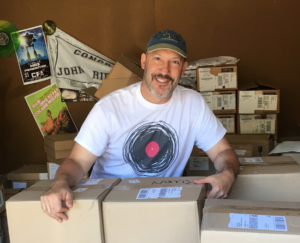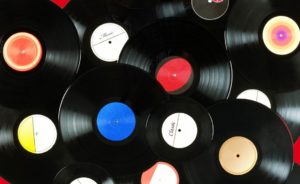 The best albums of 2017? Please. What does that even mean? Instead, here are the albums that basically lived in my CD player or in my earbuds since I first heard them.
The best albums of 2017? Please. What does that even mean? Instead, here are the albums that basically lived in my CD player or in my earbuds since I first heard them.
Last year I split my list into indie and major labels. This year was another great year for music but I brought it back to one list. If it’s a little indie heavy, that’s because I found myself listening to a lot (a LOT) of great unsung heroes of modern heavy rock, often courtesy of the consistently amazing Ripple Music.
Without further ado, these are the albums I just couldn’t stop listening to this year. Some you may know, some you are about to discover!
Fire Down Below – Viper Vixen Goddess Saint
I swear I only just found out these guys were from Belgium when I went to write this. Now I’m even more blown away. Every song on this masterful debut album is excellent, each leading into the other like a tapestry of heavy psych rock with nods to Pink Floyd and classic 70s rock and roll. How can you not love a lyric like “why did you just have to smoke me like I was your last cigarette” (“Roadburner”)? I’m not sure how else do describe them so let me put it this way – they’re not a direct relative, but they wouldn’t be out of place at a Kyuss family reunion. This is hands down my favorite album of the year.
The Flying Eyes – Burning of the Season
The swan song of Baltimore’s The Flying Eyes sees them going out at the top of their game. Burning of the Season is a tour de force of psych-infused fuzz rock that comes off as a late 60s/early 70s rock band on steroids. The deceptively laid back vocal delivery just helps to weave a subtle spell and draw you in deeper to the magic they weave.
Gary Numan – Savage
Yes that Gary Numan. Three decades after Cars was a big hit on radio and MTV, we may have his masterpiece: Savage: Tales from a Broken World, which plays like a soundtrack of a post-apocalyptic movie that I would absolutely go see right now if I could. Lush with synths and programmed drums that sound as organic and fluid as a cyborg orchestra, the songs on Savage are alternately dreamy and intense, but always haunting. Middle eastern wails and scales add extra spice to the lush soundscapes as the album progresses.
Living Colour – Shade
Um, DAMN. Living Colour is BACK. Same fire, same incredible musicianship you know and love, but with a new depth and maturity that you only get with age, like a cask strength Scotch. It’s like they didn’t miss a step, but I’m not kidding, hearing Corey Glover in my ears again brought a tear to my eye right out of the gate, it was like reuniting with a long lost friend I didn’t know I missed so much. No one bends and blends genres like these guys. Metal, rock, funk, blues and then some, Shade is a delicious and wonderful stew that you must have in your collection, and naturally their message is timely as fuck.
The Necromancers – Servants of the Salem Girl
This debut from France’s The Necromancers boasts fuzzy, heavy blues with vocals as frequently fuzzy as the guitars. It took me a few listens to realize it actually was devil-themed, but only because I was enjoying the music so much. (Yes, I know, the title, band name and cover should have tipped me off!) Servants of the Salem Girl is an album of light and shade, smooth and rough; at turns hesitant, gallopy, and sludgy, but never boring. Take it with you and crank it loud on your next muscle car trip down a dusty highway!
Royal Blood – How Did We Get So Dark
I’m not going to lie, I was hugely disappointed after waiting two years for the followup to Royal Blood’s amazing full length self-titled debut. How Did We Get So Dark sounds like a major label got hold of a great band and said ‘you have to make this more appealing to the general public’. And so it goes. BUT. But. The more I listened, the more it grew on me, and now I have to admit it is a great album in its own right. Yes, highly polished and lacking much of the grit, fire, and clever phrasing I loved on Royal Blood but yeah, it makes my list on its own merits. Full of bangers, this one.
Queens of the Stone Age – Villains
Hardcore QUOTSA fans may not dig it as much as previous records, but this Mark Ronson-produced album grabbed me and got me grinning from go. Yeah we know, Josh Homme is a diva. But you know what, there are so few bona fide rock stars any more that who gives a fuck, let him continue to fully embrace his ego and take it into the back seat of a pimped-out 57 Chevy and have his way with it, if it keeps sounding like this much fun.
Year of the Cobra – Burn Your Dead
With their third release, Seattle doom duo Year of the Cobra really seem to hit their stride, finally nailing what is close to their live sound. Amy’s soft, feminine vocals over the low growl of her Rickenbacker bass is a unique and haunting combination. Add Johanes’ beastmode drums and you have a fuzz classic on your hands. If you have a chance to see them live, do it! He may be the first drummer I’ve seen break a snare head during a show. Beast. Mode. Get it.
Huckleberry Quick – The Huckleberry Jams EP
Late addition to the list, I don’t even know how I randomly stumbled on this one, but this EP of “honkyfunk” jams from Nashville based indie Huckleberry Quick is just too groovy, too fun, to ignore. This should be on the radio instead of most of what’s there now.
Honorable Mentions
So much good music this year, these are great albums that deserve a listen or several, just wanted to throw them out there:
Mothership – High Strangeness
Gorilla Pulp – Heavy Lips
Royal Thunder – Wick
Sasquatch – Maneuvers
Samsara Blues Experiment – One With the Universe
Octopussy – Dwarfs & Giants
Really, I listened to so much music I lost track. Just check my YouTube history, you’ll find some good stuff! What were your favorites? Comment below or let me know!


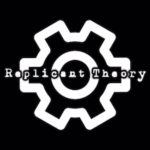
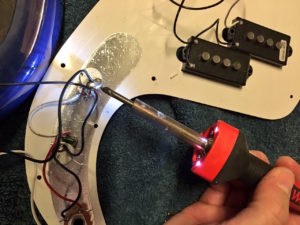
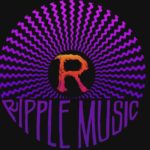 Todd Severin is the President & CEO of San Francisco Bay Area-based
Todd Severin is the President & CEO of San Francisco Bay Area-based 